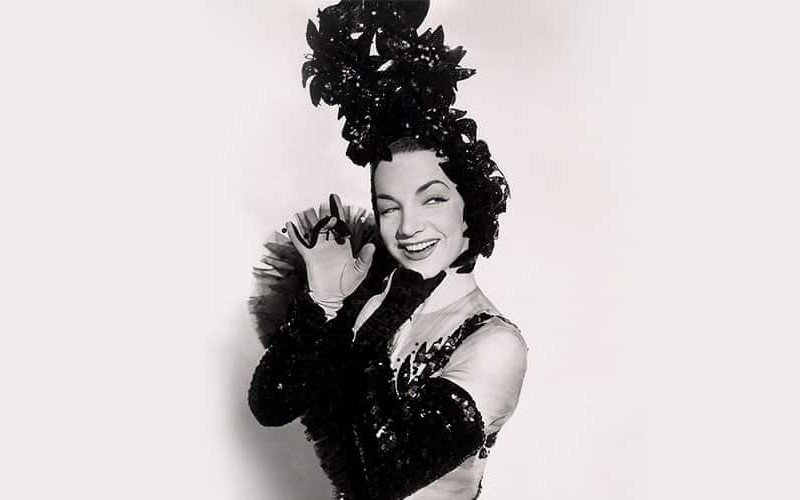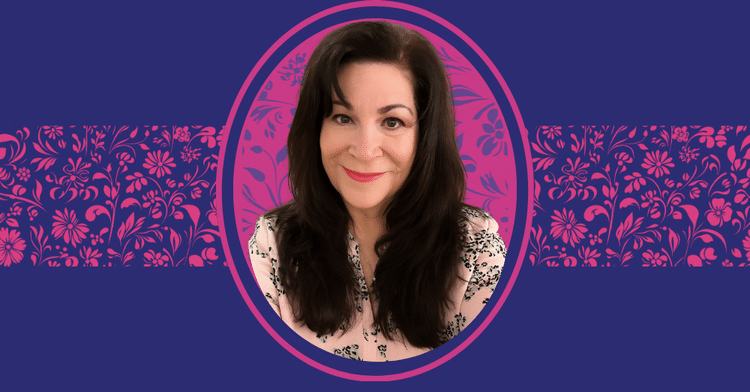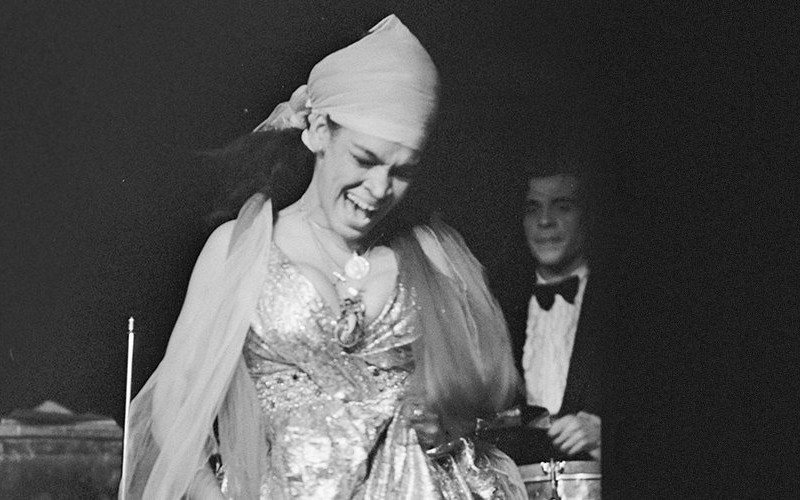Myriam Gurba Has No Regrets When It Comes To Speaking Out And Self Expression
As Gurba wrote in Mean, “What matters is a woman making art out of everything she was born with.”

“It’s nice to finally be able to do all the slutty and genderqueer stuff I wanted to do when I was 14 in my 40s,” Myriam Gurba, writer and visual artist from Santa Maria, California, tweeted, perhaps wearing nothing more than her chonies, which she recently revealed on Instagram to be her current work-from-home uniform.
Westernized puritanical institutions, those who claim you cannot be intelligent and sexy simultaneously, have long invested in perpetuating the assumption that critique is a privilege. And by doing so, establishing untenable parameters for a small chorus of peers—losing touch completely with audiences, students, and readers.
Meanwhile, savvy intellectuals like Gurba congregate each day on Twitter to engage in witty banter, call out politicians, and develop new schools of woke thought in 280 characters or less. Gurba’s never minced words when it comes to taking on institutions and the egalitarian terrain of social media is her battleground.
She is a promotion-pro extraordinaire and while she is quick to call out her grandfather Ricardo Serrano Ríos for his machismo, she also credits him, a Mexican writer and publicist, for her skill at driving movements from the handheld screen of her smartphone. Shortly before the universal scourge of the pandemic leveled our society by exposing the truth behind our oppressive systems, Gurba personally took on one of the pillars of that machinery: Big Five publishers.
Rumors of a forthcoming social justice novel meant to humanize what the author Jeanine Cummins called the “faceless brown mass” at the US-Mexico border had begun to circulate the interwebs at the end of last year. The author, a middle-aged newborn whitetina (by way of a deceased Puerto Rican grandmother) claimed to have designed the moral compass for one of the most polarizing political issues in the country with the flick of her Steinbeckian prose. Gurba had been commissioned by Ms. Magazine to write a review of American Dirt and did not hold back her criticism of the structural issues with what she called a “Frankenstein” novel or of its tacky narratives and hostile lack of character development. And her explosive criticism caused Ms. Magazine to kill the story.
Gurba’s critique laid bare how Jeanine Cummins’ personal agenda and that of Flatiron Books, a division of Macmillan, the publisher behind her seven-figure deal, were in alignment: to relegate brown bodies, stories, and intellect to their role as “the help” both on the page and beyond. The silencing of her surgically academic takedown galvanized a collective outcry of BIPOC writers into a formidable movement as her critique, later published by Tropics of Meta, went viral.
Alongside authors David Bowles and Roberto Lovato, Gurba organized a coalition of prominent writers from diverse backgrounds to demand substantive change in the publishing industry. On February 2, #DignidadLiteraria met with Macmillan President Don Weisberg, Flatiron Books President Bob Miller, representatives from various Macmillan imprints, a publicist from an independent firm hired by Flatiron, and representatives for Oprah Winfrey.
At the Dignidad Literaria rally following the historic meeting, Gurba addressed the audience of supporters and press.
“I’m an iddy bitty queer lady who teaches high school. And I spoke out against the publishing industry at the risk of potentially never being published again. And I don’t give a shit, right? If I need to, I’ll put out zines. I’ll write my next novel on a tortilla,” Gurba said “I don’t care. I’ll do what it takes. And I’ve gotten death threats and death threats and more death threats and I just have to look at them and say, hmm, this is what it feels like to be a very tiny yet somehow very scary lady, right? I’m 5’4” now but it’s because I’m wearing three-inch heels. I’m small. And if a person this small and quote-unquote insignificant can cause these many waves, so can you.”
The iconic guerrera and author of Mean, a New York Times Editors’ Choice and one of O, The Oprah Magazine’s Best Queer Books of All Time—a prize Gurba jokes is the result of the famous mogul ‘trolling’ her after relentless requests to get Oprah to remove American Dirt from her book club— is now happily focused on her writing.
As Gurba wrote in Mean, “What matters is a woman making art out of everything she was born with.” Gurba’s essays and criticism have been recently published in the Los Angeles Review of Books, Electric Literature, The Paris Review and elsewhere—a groundbreaking canon as fierce as her activism.
As a teacher at Long Beach Poly High School Gurba not only taught theory but modeled action and joined her student’s uprising against racist practices at the hands of teachers and a complicit administration. It cost her the job. “Apparently if I hurt kids, I’m fine on campus, but if I try to protect them I’m a criminal,” Gurba said in an Instagram video while being escorted off school property. She was put on administrative leave for what the district called “disruption.” The local protest foreshadowing times to come.
Gurba’s artistic expression is how she relates to the world—processing her reality through the written word. “I think of the act of sitting down to write as me engaging in a social equation. I’m trying to solve a literary and a social problem. And that’s my way of making sense of all this. It’s a sense-making endeavor.”
“I treat writing as an art form and I know that a lot of folks don’t. They think of storytelling, in terms of craft and in terms of narration, and they’re not so much concerned with language itself. And I’m not just concerned with language, I’m obsessed with language. I’ve always been obsessed with language,” Gurba explained via Zoom. “I come from a family that’s very language-driven. My father studied linguistics and worked in various language programs. And so I come to writing as an art form.”
As a public figure Gurba is well aware of the inherent risks that come with speaking out yet she remains undeterred. “I don’t care at this point in my life. I don’t care if someday I’ll regret it. I don’t care if I’m excluded from certain rewards, for example, or being published by the Big Five. I don’t care if that’s a consequence of my choices because my conscience matters more to me and having a clear conscience matters more than securing a book deal for the sake of ego, especially securing a book deal that’s going to require me to step on people of color. I’m not going to do that. Or securing a book deal that’s gonna require me to give a lap dance to white supremacy.”
Gurba’s defiance speaks to the cabrona within us all. Her rage rings true—we identify. One of the most potent effects of skillful storytelling, identification, has been sweetly described as that spark of truth that jumps from one person to the next. Gurba’s truths leap off the page or screen, recognized by so many nodding heads, only they’re not just sparks—they’re a lightning rod.



